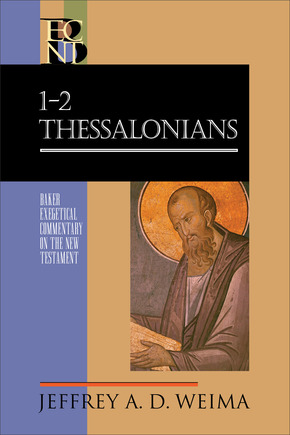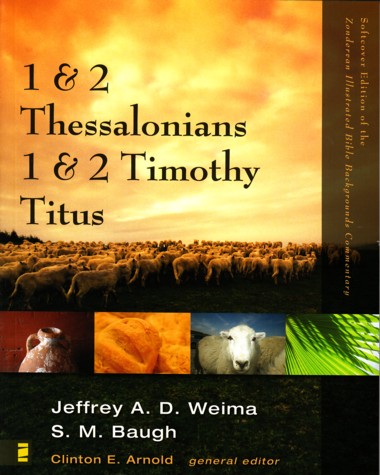Dr. Weima publishes primarily in the area of Pauline studies. His latest book, however, is on the book of Revelation and is entitled, The Sermons to the Seven Churches of Revelation: A Commentary and Guide, and was published by Baker Books in July 2021:
Description: A New Testament scholar, preacher, and tour guide to the lands of the New Testament explains the meaning of the seven sermons of Revelation 2-3 and shows how these ancient messages are relevant for the church today.
Jeffrey Weima offers readers not only detailed exegesis of the seven "letters" (actually sermons) to the seven churches of Revelation 2:1-3:22 but also sample sermons that show how these ancient messages, despite their subtle Old Testament allusions and perplexing images, are relevant for the contemporary church. The book provides an informed commentary on a challenging portion of Scripture and help toward preaching the text. Weima avoids going too deeply into scholarly debates that are difficult for readers to wade through, but he also corrects those who handle the text in a superficial manner that embraces popular interpretations not grounded in biblical exegesis or historical evidence. The book includes photos, maps, and charts and will be of interest to preachers, students, teachers, and Bible study groups.
“This useful and well-researched book offers a persuasive and spiritually enriching reading of the messages to the seven churches in Revelation 2–3. Weima first carefully sets each message within its first-century Roman context and then produces clear, engaging sermons on these ancient messages. The result is a model for the preparation and delivery of accurate and applicable expository sermons on any biblical passage. This book is not only a fascinating and compelling guide to Revelation 2–3 but a helpful textbook on expository preaching.” —Frank Thielman, Beeson Divinity School
“With his trademark care and judiciousness, Weima offers a particularly useful interpretive guide to the seven sermons of Revelation 2–3. He asks what Christ’s message was to the original churches and what it is to the contemporary worldwide church. Weima provides engaging historical detail but also presents inviting contemporary sermon models based on the sermons of Revelation. Weima’s evident faith and compassion make this book a great companion for teachers and pastors.” —L. Ann Jervis, Wycliffe College, University of Toronto
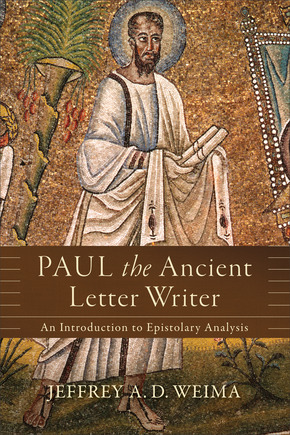
Endorsements:
"Weima's masterful study sets before readers the benefits of paying close attention to the structure of Paul's letters. The chapters investigate standard features as well as changes in the regular patterns in the opening, thanksgiving, body, and closing sections of Paul's epistles. Weima writes with great clarity and deep insight, laying out the ways in which close attention to these epistolary features can enrich and enlarge our understanding of these letters. This work will benefit scholars, students, and general readers alike with the clear presentation of ideas and the helpful application of those concepts to real examples from Paul's letters--an outstanding book from a seasoned and much-respected scholar."
Paul Foster, professor of New Testament and early Christianity, Head of the School of Divinity, University of Edinburgh
"Weima's work on Paul as the writer of letters is an essential resource for anyone who studies the Pauline Epistles. The author is clearly a master teacher because the book is marked by an unusual clarity and organization. Weima clearly explains various literary conventions that are used, but best of all he gives ample examples to illustrate the different conventions. I learned much from this book and recommend it gladly to students, pastors, and scholars." Thomas R. Schreiner, James Buchanan Harrison Professor of New Testament Interpretation, Southern Baptist Theological Seminary
"This comprehensive study of the method and literary analysis of the epistles is a valuable resource for both the beginning student of exegesis and the experienced practitioner. Weima brings together both the history of research and decades of his own work, moving beyond the identification of ancient literary conventions to demonstrate the ways in which Paul has shaped them for his own purposes. The book is unparalleled among current books on epistolography." James W. Thompson, Graduate School of Theology, Abilene Christian University
"Paul the Ancient Letter Writer is an overdue book that needed to be written. Readers of this comprehensive study will no longer be able to escape the reality of Paul having written real letters. Weima shows how the essential components of ancient letters appear in each of the thirteen texts in the New Testament's collection of Paul's letters."
Raymond F. Collins, visiting scholar, Department of Religious Studies, Brown University
"Paul the Ancient Letter Writer offers an eminently readable introduction to the method and value of epistolary analysis. As Weima guides readers through the four major sections of Paul's letters--the opening, thanksgiving, body, and closing--he shows with clarity and care how Paul both reflects and creatively adapts ancient epistolary conventions. The detailed epistolary analysis of Paul's Letter to Philemon at the end of the book offers a helpful test case that illustrates the interpretive value of this approach. I highly commend this excellent resource to all interested in the letters of Paul and of other early Christians."
David Downs, associate professor of New Testament studies, Fuller Theological Seminary
Dr. Weima completed a major commentary (711 pages) on 1 and 2 Thessalonians in 2014 in the important Baker Exegetical Commentary on the New Testament Series (BECNT):
Endorsements
"Weima has written a full and authoritative commentary on 1 and 2 Thessalonians that readers will want to consult regularly and frequently. He brings a wealth of previous research to bear upon his exegesis. The result is well-considered and thoughtful positions at almost every juncture. One of the most appealing features of the commentary is Weima's interpretation within the context of ancient epistolary structure, rather than the all-too-frequently used rhetorical analysis. Weima sets the stage for his exegesis and exposition of each section by laying out the literary character and shape of the unit to be discussed. He also provides a detailed and helpful introduction to the commentary that emphasizes the historical background of these letters. Weima shows awareness of the current debate on a wide range of issues in Thessalonians research, while also ably defending traditional positions regarding authorship, interpretation, and even text-critical matters. I am sure that this commentary will be widely used."
Stanley E. Porter, president, dean, and professor of New Testament, McMaster Divinity College, Hamilton, Ontario, Canada
"Is it possible for a commentary to be both technical and accessible, comprehensive and concise, academic and pastoral? Weima has produced precisely such a commentary on the Thessalonian Letters. One would be hard-pressed to find a full-length, up-to-date treatment of these letters that offers more than Weima's. Judicious in judgment, gracious in engagement, and clear in argument, this commentary catapults Weima to the front of an increasingly crowded field. It will become a standard, go-to resource for scholars, ministers, and students alike."
Todd D. Still, The William M. Hinson Professor of Christian Scriptures, Truett Seminary, Baylor University
"Already an acknowledged expert on the Thessalonian Letters, Weima offers fellow Christians a clear and erudite interpretation. This exegetical commentary now stands among the authoritative works on 1 and 2 Thessalonians."
L. Ann Jervis, Wycliffe College, University of Toronto
Dr. Weima's other three books include the following:
1 & 2 Thessalonians.
New Testament Studies 58 (2012) 331-358
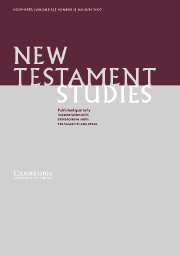
"Paul's Persuasive Prose: An Epistolary Analysis of the Letter to Philemon"
Philemon in Perspective. Interpreting a Pauline Letter (ed. D. Francois Tolmie;
Berlin: Walter de Gruyter; 2010) 29-60
"Sincerely, Paul. The Significance of the Pauline Letter Closings"
in Paul and the Ancient Letter Form (ed. Stanley E. Porter and Sean A. Adams;
Leiden: Brill, 2010)307-345.
"The Reason for Romans: The Evidence of Its Epistolary Framework (1:1-15; 15:14-16:27)"
Review & Expositor 100 (2003) 17-32
"Infants, Nursing Mother and Father: Paul's Portrayal of a Pastor" (1 Thess 2:1-12)
Calvin Theological Journal 37 (2002) 209-229
"'But We Became Infants Among You': The Case for NEPIOI in 1 Thessalonians 2:7"
New Testament Studies 46 (2000) 547-564.

"An Apology for the Apologetic Function of 1 Thessalonians 2:1-12"
Journal for the Study of the New Testament 68.4 (1997) 73-99
"Preaching the Gospel in Rome: A Study of the Epistolary Framework of Romans"
in Gospel in Paul. Studies on Corinthians, Galatians and Romans for Richard N. Longenecker
(eds. L. A. Jervis and Peter Richardson; Sheffield: JSOT Press, 1995) 337-366.
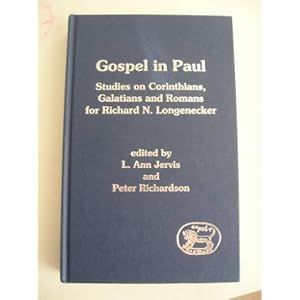
Calvin Theological Journal 41 (2006) 67-88
"1 & 2 Thessalonians"
Commentary on the New Testament Use of the Old Testament
(ed. G. K. Beale and D. A. Carson; Grand Rapids: Baker, 2007) 871-889.
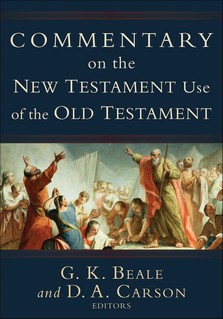
in Patterns of Discipleship in the New Testament
(ed. Richard N. Longenecker; Grand Rapids: Eerdmans, 1996): 98-119
"Literary Criticism"
New Testament Criticism and Interpretation
(ed. David Alan Black and David S. Dockery; Nashville: Broadman and Holman, 2001) 150-169
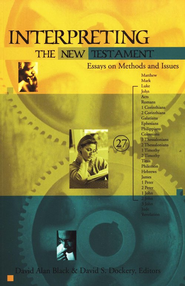
"The Function of 1 Thessalonians 2:1-12 and the Use of Rhetorical Criticism. A Response to Otto Merk"
The Thessalonians Debate: Methodological Discord or Methodological Synthesis?
(ed. Karl P. Donfried and Johannes Beutler; Grand Rapids: Eerdmans, 2000) 114-131

"Galatians 6:11-18. A Hermeneutical Key to the Galatians Letter"
Calvin Theological Journal 28 (1993) 90-107



